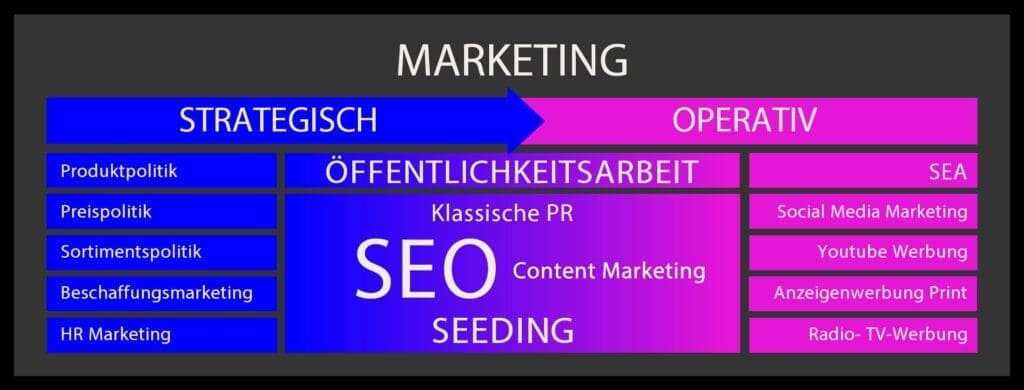- ks@pr-agentur.pro
- 0176 40783890
- Magazin
- Mein Konto

Inhaltsverzeichnis
ToggleHolistisches Marketing, davon haben Sie sicher bereits gehört. Doch was verbirgt sich hinter dieser Bezeichnung? Lesen Sie hier, was es genau beinhaltet und was die Vorteile sind.
Gut durchdachte Marketingaktivitäten sind für den langfristigen Erfolg eines Unternehmens essenziell. Holismus stammt aus dem Altgriechischen und „holos“ bedeutet „ganz“. Der Begriff steht für Ganzheitslehre. Holistisches Marketing beschreibt demnach ganzheitliches Marketing, sodass bei der Umsetzung der Strategien alle wichtigen Bereiche abgedeckt werden. Es umfasst folgende Komponenten:
Gutes Marketing beginnt innerhalb eines Unternehmens. Hierbei geht es beispielsweise um die Einstellung, Ausbildung und Motivation von Mitarbeitern, die Übermittlung der Markenwerte, eine gelungene interne Kommunikation und einen permanenten Informationsaustausch. Die Ziele lauten Kundenorientierung und -zufriedenheit. Nur mit einem optimalen internen Marketing ist effizientes externes Marketing möglich.
Integriertes Marketing bedeutet, dass in allen Kampagnen und Kanälen eine einheitliche Kommunikation erfolgt. Die einzelnen Maßnahmen und Aktivitäten sind demnach gut aufeinander abgestimmt. Dies wird auch als Unternehmensidentität bezeichnet und kann den Erfolg maßgeblich beeinflussen.
Performance-Marketing bedeutet, dass der Erfolg diverser Maßnahmen ermittelt wird, um sie, falls notwendig, zu optimieren, die Reichweite zu steigern und Kosten zu verringern. Es umfasst auch Nischenmarketing. Tools, wie Google Analytics, kommen dafür zum Einsatz.
Beim Relationship Marketing geht es um das Verständnis von der Beziehung zwischen dem Unternehmen und den Kunden. Die Unternehmensbeziehungen stehen demnach im Vordergrund. Das Ziel besteht darum, sie zu pflegen, nachhaltig aufzubauen und zu erhalten und, falls nötig, Verbesserungsmaßnahmen einzuleiten.
Holistisches Marketing bedeutet somit, das Unternehmen wird als Ganzes betrachtet, inklusive:
Hierfür werden der Markt, Wettbewerb und das Unternehmen genau analysiert und in verschiedenen Kanälen erfolgt eine gezielte Kommunikation. Zu guter Letzt geht es immer darum, den Stand der Firma im Markt zu prüfen, relevante Zielgruppen zu ermitteln und bedeutende Netzwerke festzulegen. So vereint holistisches Marketing alle wichtigen Strategien, die sich gegenseitig ergänzen und verstärken. Die Reichweite wird im Idealfall über die Zielgruppe hinaus erweitert.
Die Konkurrenz im Markt ist meist hoch. Daher ist es wichtig, nachweislich effektive Maßnahmen einzusetzen. Holistisches Marketing beschreibt eine ganzheitliche Strategie, um alle aufeinander abzustimmen, ein positives Markenimage aufzubauen und eine langfristige Kundenbindung zu erreichen. Dabei verfolgen alle Bereiche des Unternehmens das gleiche Ziel. Analysen, Preis- und Produktgestaltung, Distributions- und Kommunikationsstrategie sind wichtige Faktoren für Markenbildung, Effizienz, Effektivität und Beständigkeit eines Unternehmens.
© 2020 – 2025 Marketing Effective Webdesign